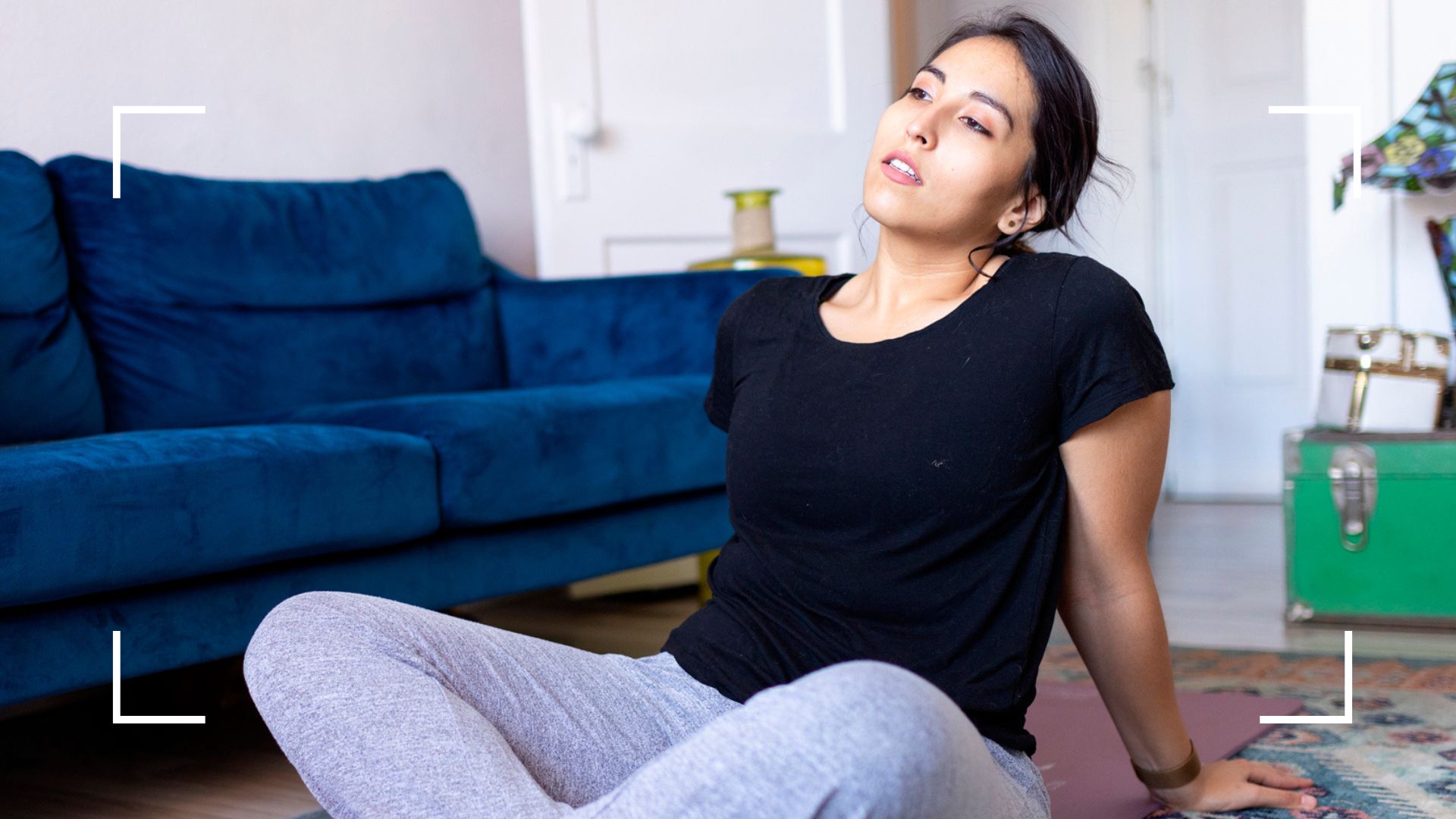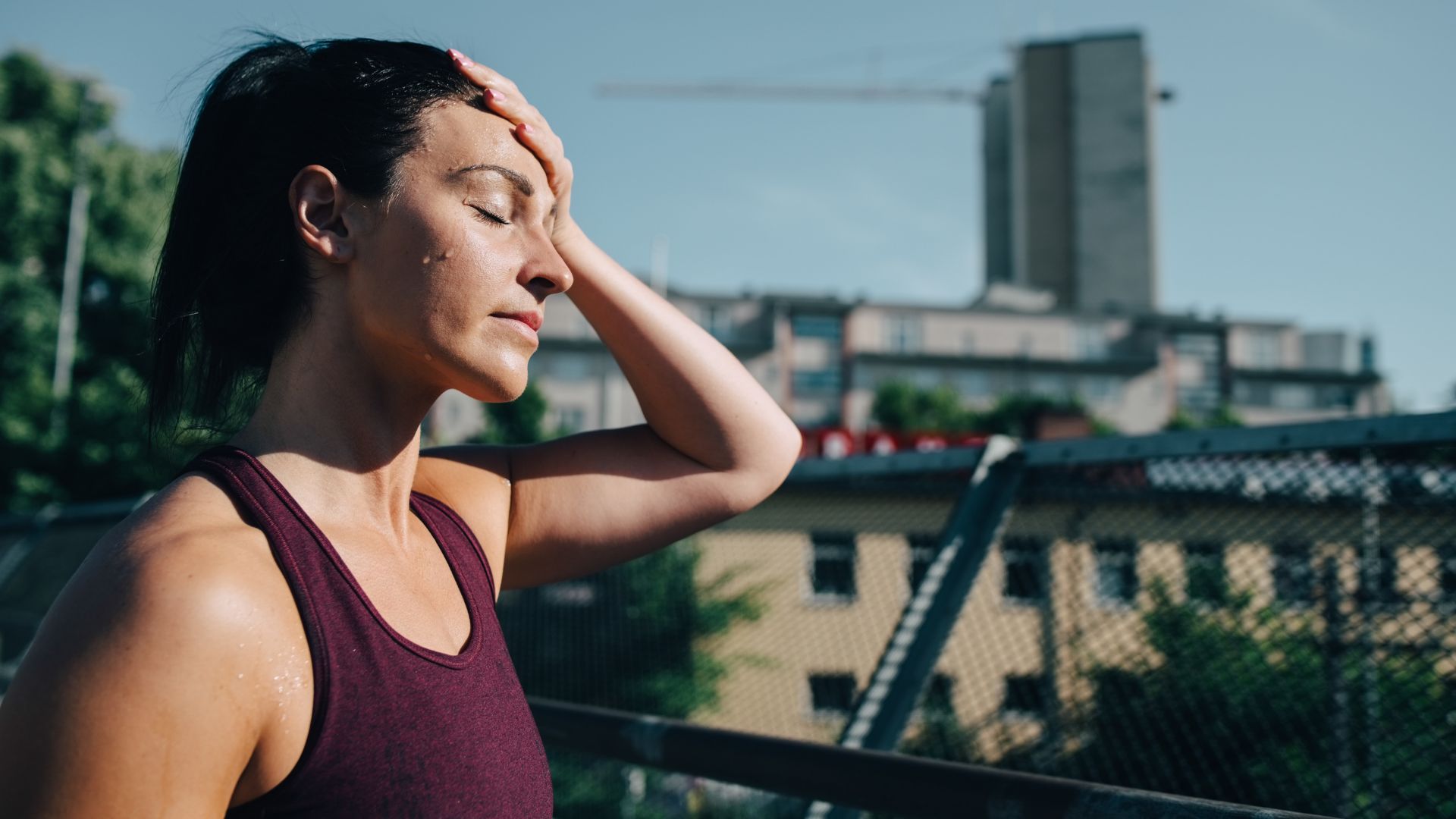Should you exercise if you feel run down? Personal trainer reveals the big mistake you could be making this winter
Exercising while you feel run down can lead to all kinds of issues for your mental and physical health


Should you exercise if you feel run down? It's a question we've all asked ourselves at one time or another, be it when recovering from nasty flu or a busy few weeks. But those committed to an exercise regime can often find it difficult to distinguish between feeling run down and just lacking the motivation.
When we're not performing our best, our bodies have a pretty obvious way of telling us. We can feel constantly tired, lacking in energy, and just generally pretty lethargic, alongside physical symptoms like sore or aching muscles, headaches, and flare ups of existing health conditions.
Much like questions around whether you should work out with a cold, whether you should exercise when you're feeling run down is one of the most commonly-asked questions for those looking to exercise in winter especially, considering the darker mornings and evenings.
Should you exercise if you feel run down?
The short answer is that if you feel exhausted, you shouldn't exercise. "Exhaustion is a sign from your body to say that you need to rest. If you ignore these signs, you could get sick or injure yourself," warns Amy Brogan, a qualified personal trainer and Pilates instructor. "It is not beneficial to exercise when your body needs to rest, it's counterproductive."
Brogan, who is also the founder of the digital and wellness platform A Body Forever, continues. "Rest is so underrated," she says. "It's crazy how many people ignore these signs in the name of discipline. Our body speaks to us all the time, the more you listen the quicker you will see results."

Why rest days are so important
It's important to remember the key role of sleep and other types of rest in the recovery process here. For example, research from the Université Paris Descartes shows that one of sleep’s many functions is to give the muscles a chance to repair themselves. During stage three of non-rapid eye movement sleep (otherwise known as ‘dreamless’ sleep), growth hormone is produced. This is what helps to repair muscles and tissue damaged through exercise and daily wear and tear. The study reveals that the longer we sleep, the better our recovery will be.
This recovery time can also help us avoid the seasonal pitfalls of exercising outdoors, including catching colds and the flu, as important hormones called cytokines are produced during sleep and rest. These hormones can help to reduce inflammation and help our immune system function to its full capacity, a review by the University of Cincinnati reveals.
Sign up for the woman&home newsletter
Sign up to our free daily email for the latest royal and entertainment news, interesting opinion, expert advice on styling and beauty trends, and no-nonsense guides to the health and wellness questions you want answered.
As for our mental recovery from feeling run down, taking a rest day from exercise and getting enough sleep is also vital. Some of the side effects of being run down are struggling to concentrate for long periods, difficulty creating short-term memories, and impaired decision-making abilities. Plenty of studies and reviews, including a leading one by the University of Zurich and the University of Turku, have shown that getting enough rest can repair these issues for most people.
So when you opt for another workout - whether that's just a short run around the block or a full-on HIIT workout - over an early night, you're not allowing your body to repair itself fully. This means that you're more susceptible to exercise burnout and whatever progress you're looking to make will be harder to achieve, especially if your goal involves muscle growth, weight loss, or improving your overall fitness levels.
Signs of overtraining
1. Fatigue
We've all felt tired after a workout but fatigue is something a little different. Tiredness can be fixed with an early night and figuring out how to sleep better, whereas fatigue, according to Massachusetts General Hospital, tends to be a mental and physical response to a combination of physical activity, emotional stress, and a lack of sleep, for many people.
When it comes to working out, Brogan says, "your training sessions will often feel flat. You'll always be tired and training will leave you feeling depleted rather than energized."
2. Plateauing or declining in progress
If you're aiming for weight loss, for example, and you're working out but not losing weight then you may be overtraining. "It depends on the individual's program and goals but if you start plateauing, or worse, regressing, this is a sign that you need to rest, reset, and change your strategy," says Brogan.
Plateauing is relatively normal if your body has acclimatized to the pressure you're putting it under. To get back on track, you need to switch things up. You could increase the repetitions of your workout (if you do strength training, for example) or increase the weight. Alternatively, you could take a break for a few weeks.
3. Weight gain
There's nothing wrong with gaining weight but it could be a sign that you're feeling run down if you're working out a lot. "When we over-train, our bodies go into fight or flight mode, resulting in high levels of cortisol [the stress hormone] being produced in the body," explains Brogan. "Because we are not resting enough, our body can't return to normality and prolonged high levels of cortisol send signals to our body to store fat."
How to help your body when you're feeling run down
- Take a break from exercise: This is going to be the most effective solution, Brogan argues. "I would suggest taking a rest, that's the best exercise the body can do when it's tired."
- Go for a relaxed walk: This is more about the mind-body connection and being out in nature. Walking meditation, for example, rather than hiking or walking as a workout. "Walking is a natural state, it's a great low-impact exercise and it won't stress your body out," she says.
- Do some gentle stretching: "[Stretching and yoga sessions] are restorative and they allow the body to move without stress."

Grace Walsh is woman&home's Health Channel Editor, working across the areas of fitness, nutrition, sleep, mental health, relationships, and sex. She is also a qualified fitness instructor. In 2025, she will be taking on her third marathon in Brighton, completing her first ultra marathon, and qualifying as a certified personal trainer and nutrition coach.
A digital journalist with over seven years experience as a writer and editor for UK publications, Grace has covered (almost) everything in the world of health and wellbeing with bylines in Cosmopolitan, Red, The i Paper, GoodtoKnow, and more.
-
 We're in awe of Sienna Miller's easy-going and 'piece-y' hairstyle and how perfect it is for spring
We're in awe of Sienna Miller's easy-going and 'piece-y' hairstyle and how perfect it is for springThis laid-back hairstyle is - quite literally - making waves this season
By Naomi Jamieson
-
 We never thought we'd see this 'dated' manicure make a chic comeback, but here it is - and we're on board
We never thought we'd see this 'dated' manicure make a chic comeback, but here it is - and we're on boardClean and angular, short square French tips are a go-to this season for a practical but stylish manicure...
By Naomi Jamieson